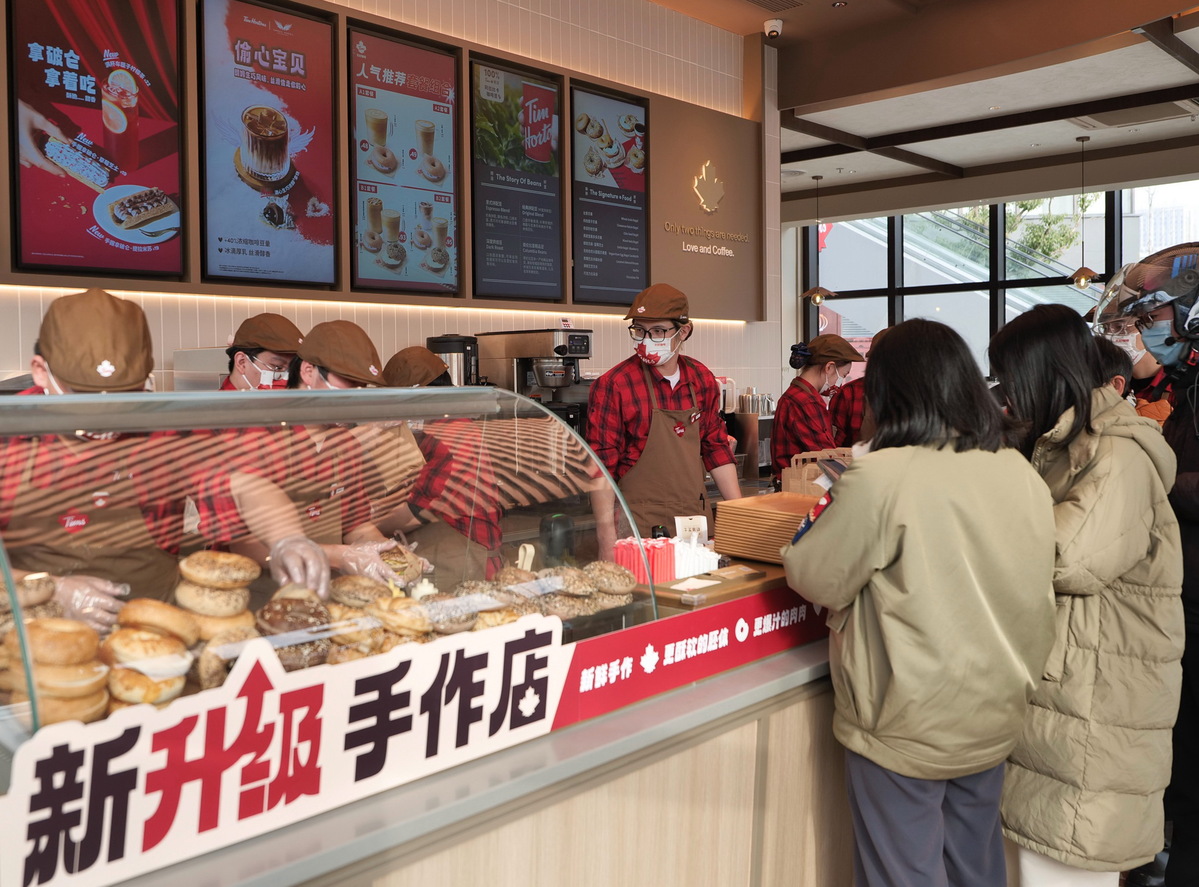Coffee market bubbles as brands tweak strategy
Partnerships with retailers, investing in supply chains to support faster outlet expansion
By WANG ZHUOQIONG | China Daily | Updated: 2024-10-30 10:29

"We offer a high-value product with every meal, creating an edge in a crowded market," said CEO Lu Yongchen. "We prioritize quality over quantity, building our brand without blindly chasing expansion."
Tims China had attracted 21.4 million members as of its second-quarter results. Lu said that Tims will not follow the industry's "involution", or the race to the bottom on pricing, instead focusing on sustainability and quality for long-term success.
As the coffee industry leader in China, Starbucks has embraced local partnerships and sustainability initiatives to strengthen its brand.
According to its preliminary fourth quarter results, China comparable store sales declined 14 percent, driven by an 8 percent decline in average ticket, compounded by a 6 percent decline in comparable transactions, weighed down by intensified competition and a soft macro environment that impacted consumer spending.
"Our fourth quarter performance makes it clear that we need to fundamentally change our strategy so we can get back to growth and that's exactly what we are doing with our 'Back to Starbucks' plan," said Brian Niccol, chairman and chief executive officer.
Its efforts to gain more customers in China have been intensified with its expansion into university campuses, including new stores in Fudan University in Shanghai, University of International Business and Economics in Beijing and Guangzhou College of Commerce.
The company aims to operate 9,000 stores across 300 cities by 2025, a goal that aligns with its broader strategy of supporting China's coffee-growing regions and creating new jobs.
Recently, Starbucks enhanced its local supply chain with a supplier convention in Yunnan. Around 1,500 coffee bean growers attended the event, where Starbucks China CEO Liu Wenjuan announced that every cup of Starbucks classic espresso coffee sold on the Chinese mainland would be made from Yunnan-grown beans.
This partnership reflects Starbucks' commitment to sustainability and quality. The company's Farmer Support Center in Pu'er, Yunnan, has been operating for over a decade, training over 36,800 farmers and certifying 3,411 farms through its C.A.F.E. Practices, a program aimed at responsible sourcing. Over the past 12 years, Starbucks has purchased more than 65,000 tons of coffee from Yunnan.
Starbucks is also focusing on leadership to drive growth, with Molly Liu, or Liu Wenjuan, recently promoted to global executive vice-president and co-CEO of Starbucks China. Under her leadership, the company continues to innovate in store management, quality control, and customer experience. Chairwoman and CEO Belinda Wong, who has led Starbucks China's growth since 2011, remains at the helm, aiming to create over 10,000 jobs annually by 2025.
"As these brands redefine their strategies, China's coffee market is evolving from a battleground of low prices to a space where quality, brand reputation and innovation are becoming increasingly important," said Zhu, the analyst. "The overall number of coffee consumers is ever expanding, contributing to a more diversified and dynamic coffee experience."
























